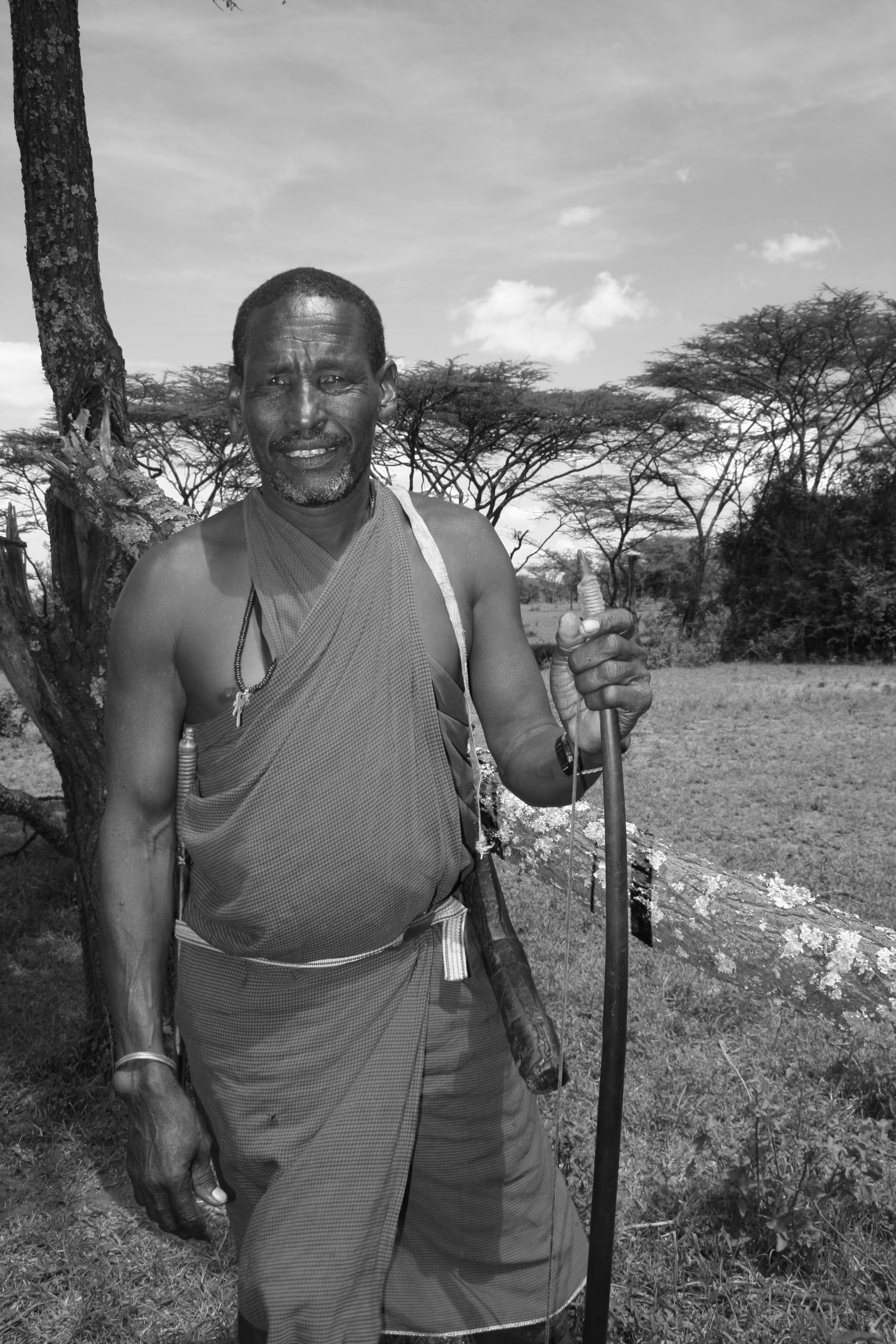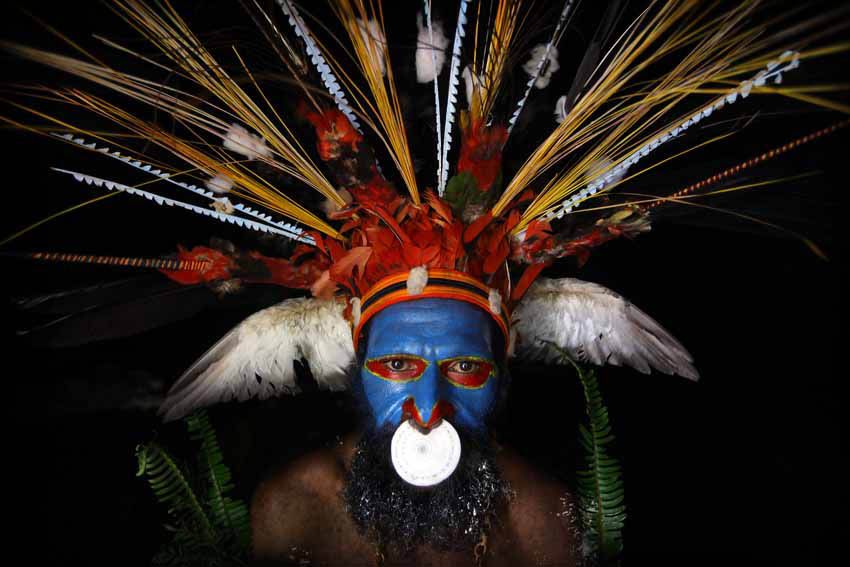The End and the Beginning of Human Planet
by Dale Templar, Series Producer
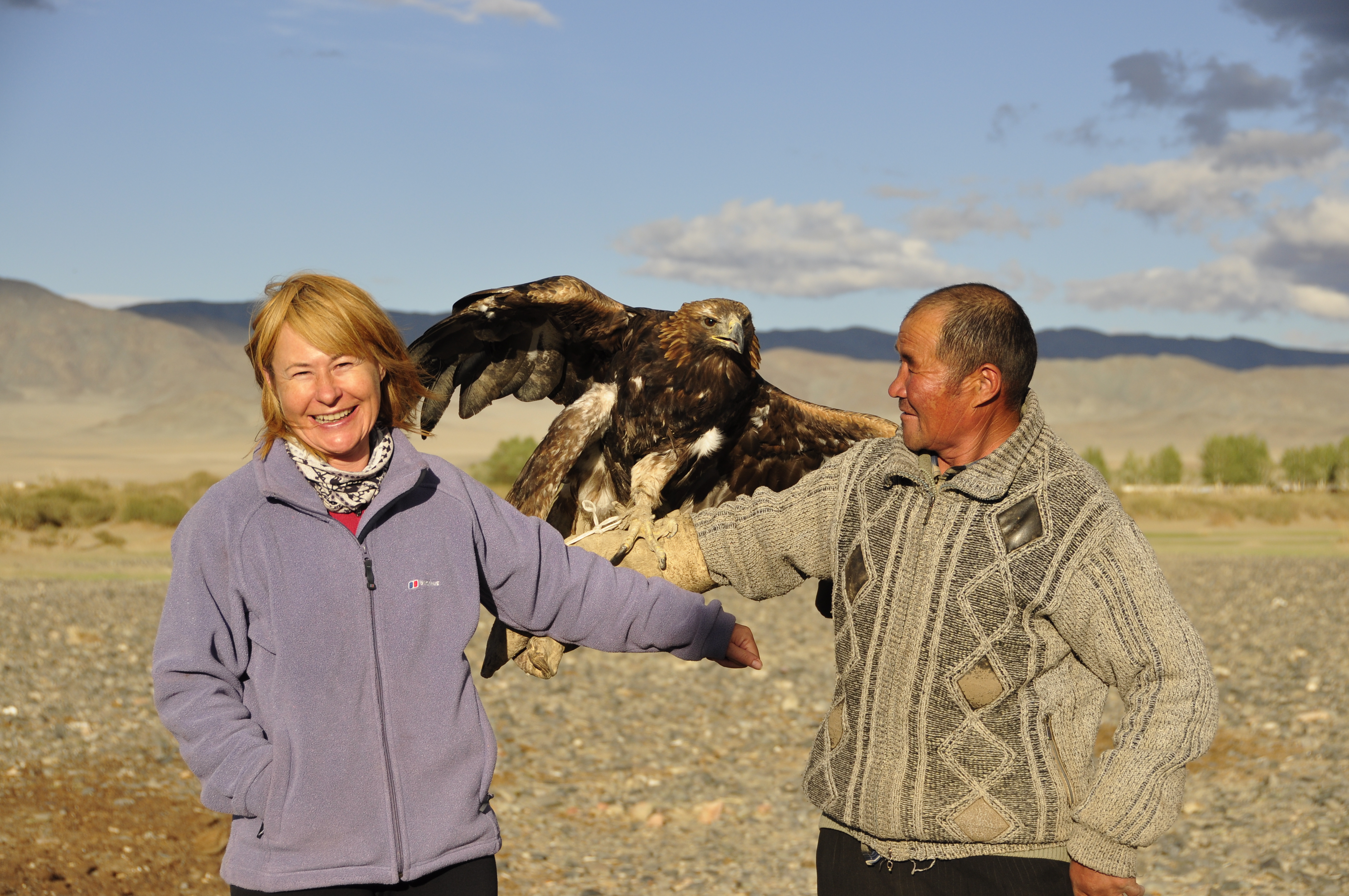
Dale pictured in Mongolia on a shoot to film the Eagle Hunters sequence from the Mountains programme.
Last Thursday saw the final episode of Human Planet transmit in the UK. I had mixed feelings as I watched the end credits roll for the last time. After three intense years, sending teams to over 70 locations including some of the remotest places on earth, this really did mark the end of the formal production process on the series. It is always sad when a production ends. Virtually all of my amazingly talent team have gone - many already on new adventures around the world. There is literally just a handful of us left in the Bristol and Cardiff offices.
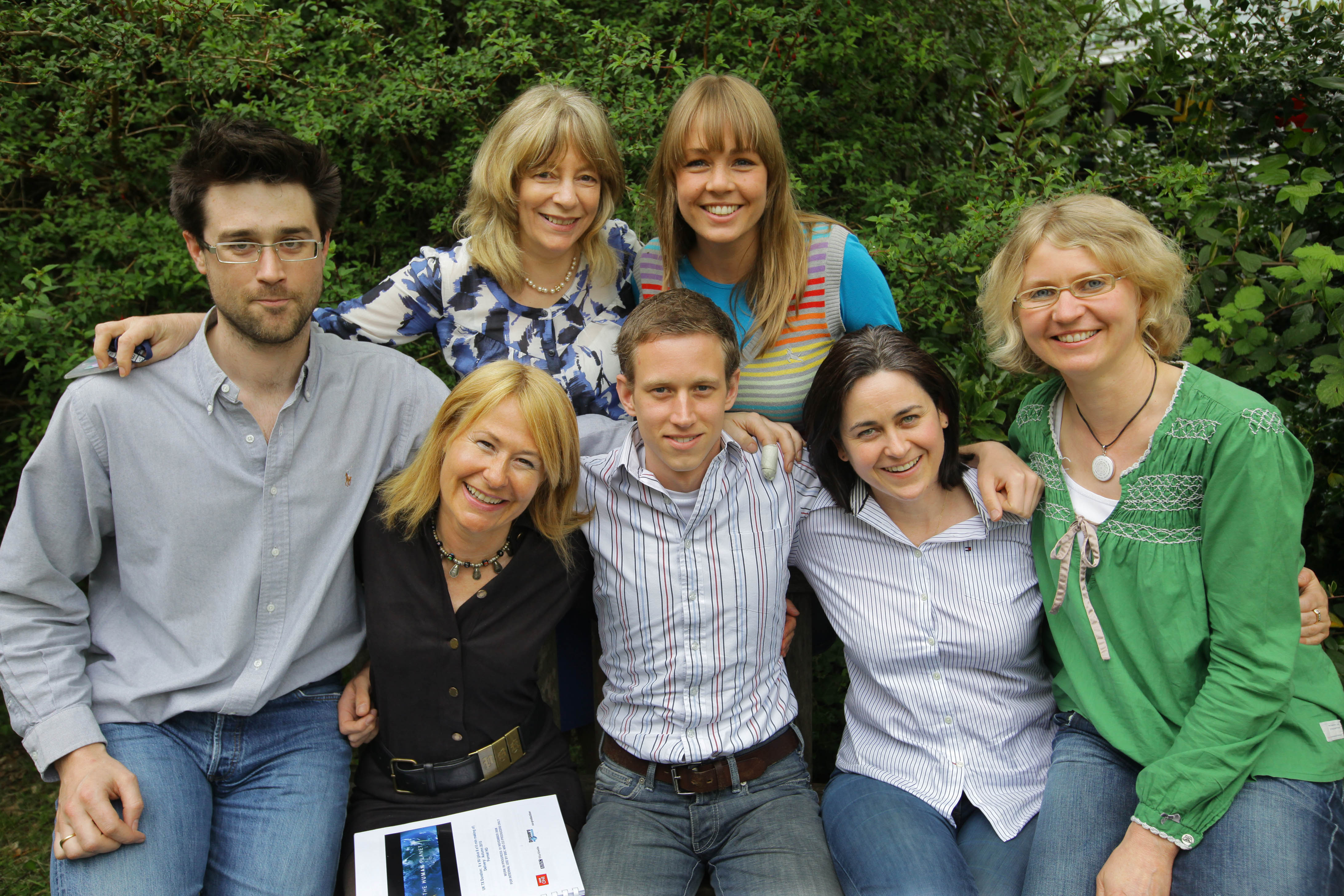
Dale with some of the Human Planet team. From left - right (front) Edit Assistant Craig Haywood, (Dale), Technical Co-ordinator Jasper Montana, Production Co-ordinator Isabelle Corr, Production Manager Alison Brown-Humes. (Back) Production Management Assistant Julia Wellard, Production Co-ordinator Jo Manley (Photo copyright Timothy Allen 2010)
But Human Planet has been different from any other programme I have ever worked on. Normally the last UK transmission would be the end of the series. For Human Planet it feels like a new beginning. For a start I am still in slight shock at the amazingly intense and positive reaction we have had to the series from people of all age groups. The series has been praised by members of the Royal Geographical Society, it’s been the focus of talk and gossip around office water coolers and it’s been making news particuarly online. I’m especially pleased that the series has connected with a younger audience - there’s been a buzz on Twitter and Facebook and millions of hits on You Tube. One young mum told me her 3 year old son was a huge fan of Human Planet, watching every episode without fail! No programme maker can ever be sure of a hit. This is a very fickle industry and audiences can never be guaranteed even when you’ve made a landmark series for the BBC. The feeling is that Human Planet is a fresh and different type of landmark. Many people, even those who don’t normally enjoy natural history have become hooked on humans!
Personally I hope this new found passion for humanity will continue. The series is a spectacular snapshot of the diverse human world we live in. But the world is changing fast, very fast. It’s becoming increasingly hermogenised. Even now one City looks much like the next - same Starbucks , same McDonald’s. Human Planet filmed with people who still directly depend on the natural world for their survival but their wisdom and customs may soon be disappear. The human species cannot be set in aspic but I think many of the stories we filmed will be gone within the next 10 years.
So what next? The series is now out on DVD/Blu-Ray and the book is in the shops. Next month it jumps across the Atlantic to be shown on Discovery Channel (a different version from the one showing in the UK) Then the UK version will start being shown on television around the world. So look out for Human Planet in your neck of the woods! Hopefully the BBC will commission a second series, watch this space…
So hopefully the end is truly just the beginning…I can only hope that this series sparks an interest in the challenges facing our human planet and that more is done to protect the incredible diversity, languages and cultures of our magnificent species.
Long live the Human Planet and all that sail on her!
15 Minutes of Fame Across the World
by Karina Moreton, Mongolian Fixer, Human Planet
The Human Planet series is made up of over 70 individal stories, each several minutes in length. As many of you will have gathered from the “Behind the Lens” snippets at the end of each episode, filming these sequences is never easy. Not only were there the challenges of the film crew – such as how to deal with ice melting; cliff edges and tides turning, there are the stories of the people portrayed. For some of them, the whirlwind of a film crew living with them was years ago now and they have gone about their daily lives since. Now that the series is out, will anything change for them?
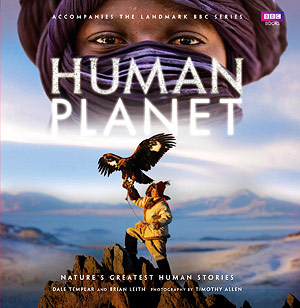
Berik from Human Planet's Mountains programme features on the book's cover
Berik from the Mountains programme is 16 years old. This is him and his eagle on the front of the book that accompanies the series. The book and programmes will be distributed worldwide and it’s hoped they will reach a huge audience. This is more than 15 minutes of fame! Around the world there is a culture of stardom – what would the teenagers from ‘Fame Academy’ and other talent shows give for this exposure? Some could worry that it might go to his head.
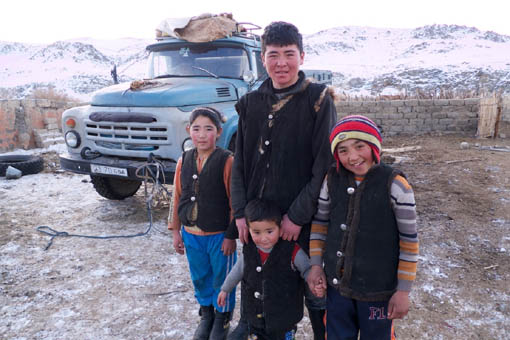
Berik with his cousins at his family home in Altansogts (image copyright Dina Mufti)
I’d like to show a photo or a clip of Berik looking at the book or DVD and giving his reactions. This however isn’t possible. Although copies of the book are on the way to Berik, they will take another 40 days to reach him. ’Outer’ Mongolia is considered to be the back of beyond, and Berik lives in one of the most remote parts of the country. I don’t anticipate that Berik will be exposed to his ‘fame’ until the next Eagle Festival.
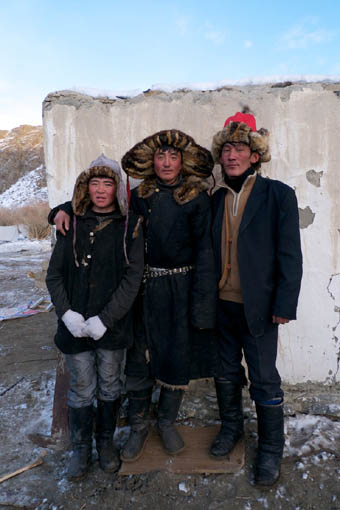
Berik with his older eagle hunting friends … before his first big hunt. (Image copyright Dina Mufti)
I think initially it will be the pages they feature in that will be the most thumbed through, though, with time, the other pages will be the ones that hold their attention. Over the last ten years of travelling through Mongolia, I have shown the reindeer herders of the north photographs of the camel herders in the south and I have shown young children photos of wolves and argali, animals that they have only dreamt of. Suddenly through this book, the Kazakh Eagle hunters of Mongolia are connected with not only the horse and camel breeders of central and southern Mongolia, but now they have shared an experience with the narwhal hunters of Greenland, mussel hunters of Canada and the honey gatherers of Nepal.
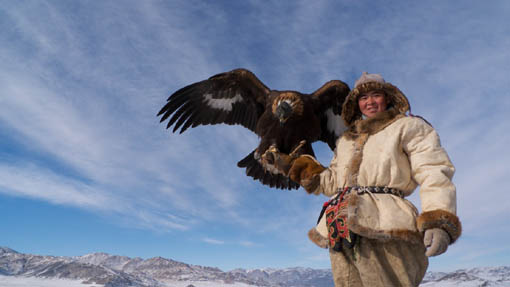
Berik, shortly after he catches his first fox …now officially a 'Kazakh man' (Image copyright Dina Mufti)
Mongolia is a landlocked country, so the images of the sea gypsies in the Pacific will no doubt enthral them. The bird of paradise hunter with his colourful headdress and nose piercing will amuse them. The naked Suri fighters will bemuse them. It is however I believe the story of the falconer in Dubai that will fascinate them. So much in common – for he also trains birds of prey to hunt, and yet they are in such a totally different world. Coming from a country with a rural population density of 0.9 people per square kilometre, it is almost inconceivable for a Mongolian to comprehend what it would be like to live in Dubai where there are 408 people per square kilometre.
Rural urban migration is a problem in Mongolia. Teenagers are attracted to the bright lights of the city. Berik might still be pulled away from his traditional way of life, but I think that perhaps the series will have changed the prospects for him and other young eagle hunters. By hosting occasional visitors who want to experience their culture first hand, this and other communities like them, have a renewed pride in what they do and a much-needed supplementary source of income.
After the characters in the Human Planet series have had their 15 minutes of fame, the book and the DVD will live on and spread their stories around the world. Many of the traditions and practises shown in the series may not survive until eternity.
Perhaps though, unknowingly, by exposing some of the characters to ‘others’ they may have slowed down the demise of man’s diversity?
Welcome to Human Planet
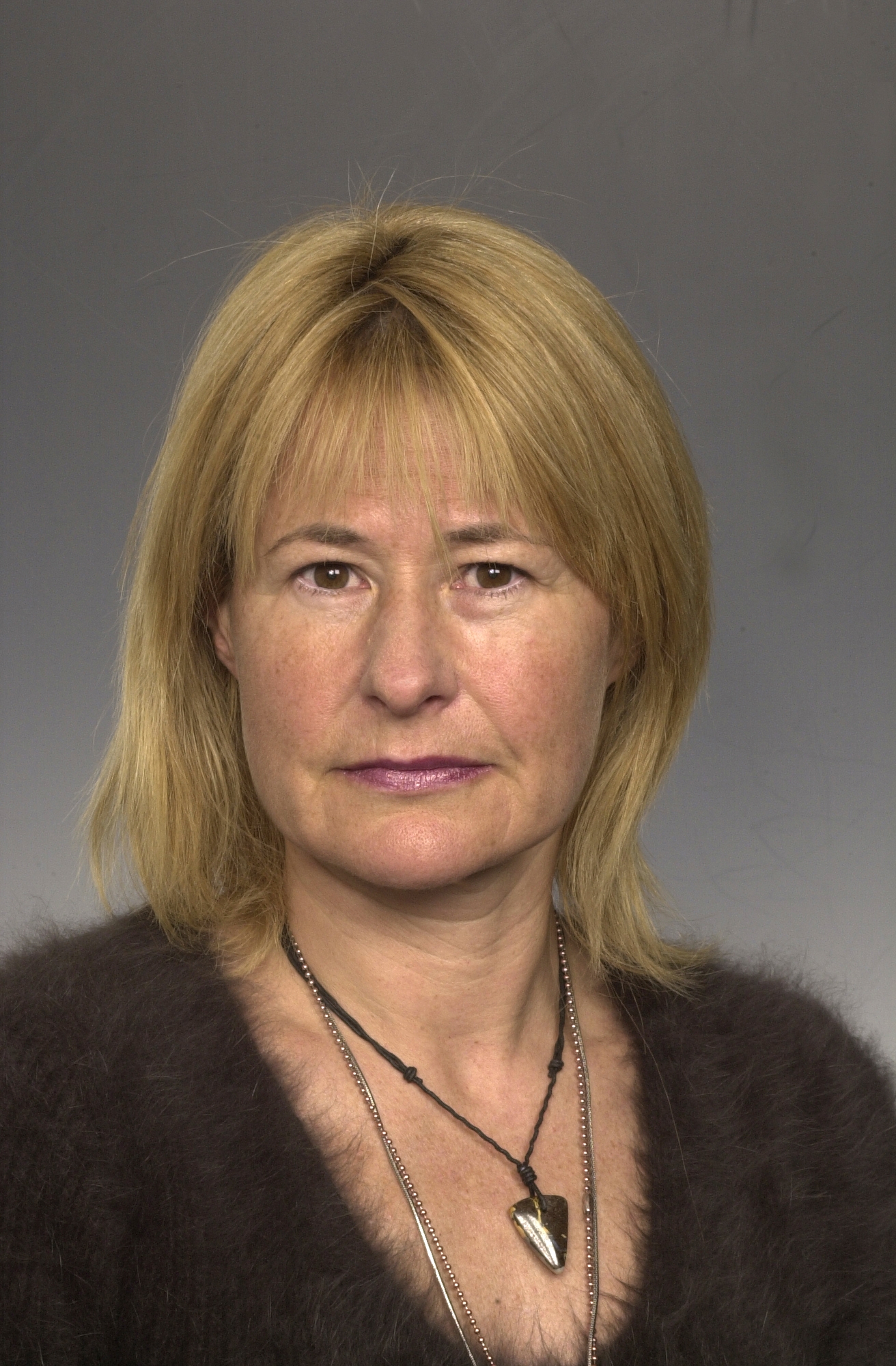
Dale Templar, Series Producer
by Dale Templar, Series Producer
So what is Human Planet? Human Planet is a new 8×50 minute landmark documentary series being made by BBC Television. The series celebrates the human species and looks at our relationship with the natural world by showing the remarkable ways we have adapted to life in every environment on earth. It is due to be transmitted in the UK in the New Year 2011 and will be rolled out across the world soon after.
The production team is split across two sites, one in Bristol and one in Cardiff.
In BBC Bristol we are part of the world renowned Natural History Unit. You may have heard of us, but if not, you’ve probably watched some of our programmes. Many have been presented or narrated by Sir David Attenborough, like Planet Earth and Blue Planet. Most recently we’ve just finished Nature’s Great Events which our own executive producer, Brian Leith, worked on.
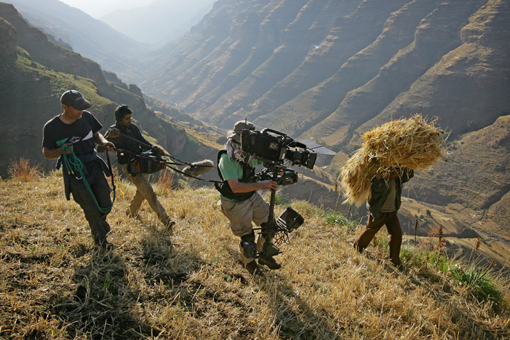
BBC Human Planet : Simien Mountains
BBC Wales, based in Cardiff, are probably best known in the UK right now for producing high end popular dramas like Doctor Who. Torchwood, another sci-fi doc that comes out of Cardiff, is also an HD production and Human Planet will be using the same excellent post-production facilities. The factual department is best known for its ground-breaking anthropology documentary series Tribe.
In total we have a core team of 20 phenomenally talented programme makers, who come with a wide range of skills and experiences. Working with us are some of the best wildlife and documentary camera crews and fixers in the world. For the first time we have a dedicated stills photographer, Timothy Allen, who will be posting his own Human Planet blog every week at http://timothyallen.blogs.bbcearth.com/
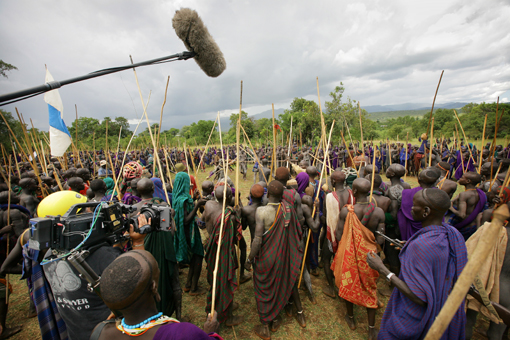
BBC Human Planet : Suri stick fight
The series started in full production in the summer of 2008 and we will be shooting over 70 stories in some of the most remote locations on earth in around 40 different countries.
Each episode will focus on one single environment: desert, jungles, arctic, grasslands, rivers, mountains, oceans and urban. Many of the stories are extremely dramatic and will show how we have successfully adapted and survived in the most challenging places on the planet.
As from next week each member of the team will be blogging their stories from the Human Planet. I will keep you updated on where everyone is and give you general news about the series.
Currently, we have teams that have just come back from the remote southern region of Mongolia, filming for the desert episode. On location are the Jungles and Mountains team who are in the Central African Republic and Nepal. I’ll let you work out which team is where!
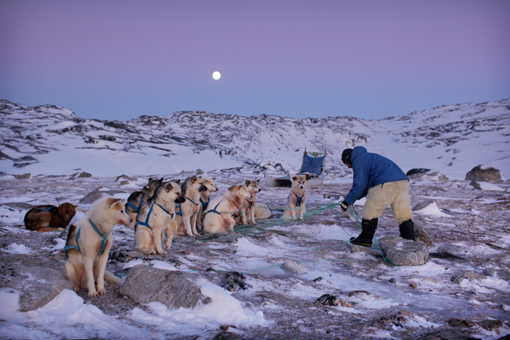
BBC Human Planet : Arctic Dawn
That’s it for now …enjoy the photos and the sneak preview from the series. See the link if you’d like to read what Timothy Allen’s been up to and don’t forget to explore the new BBC Earth site too. Look out for the regular Friday posting from the Human Planet team, with fascinating stories and tales from both our many locations and from the office.
Party in the Desert
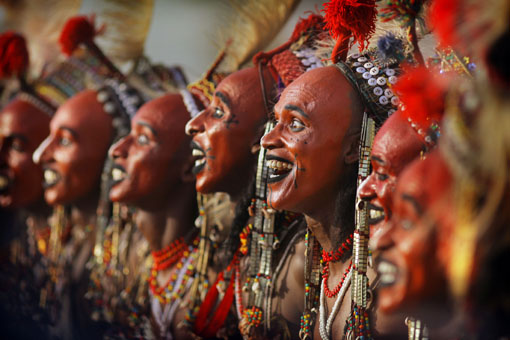
The Wodaabe of Niger
